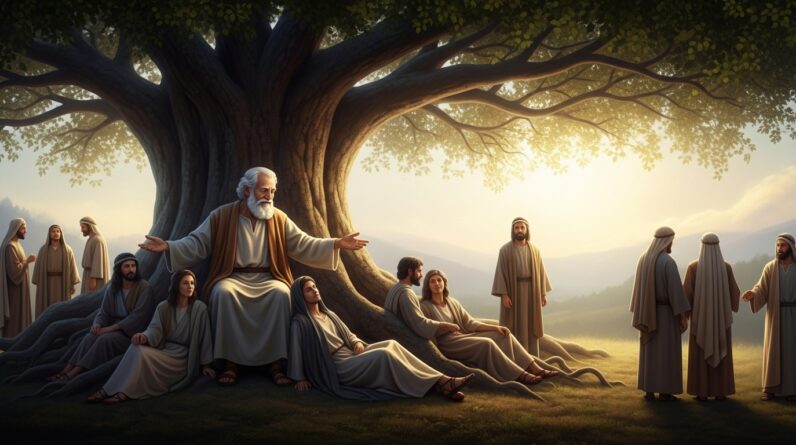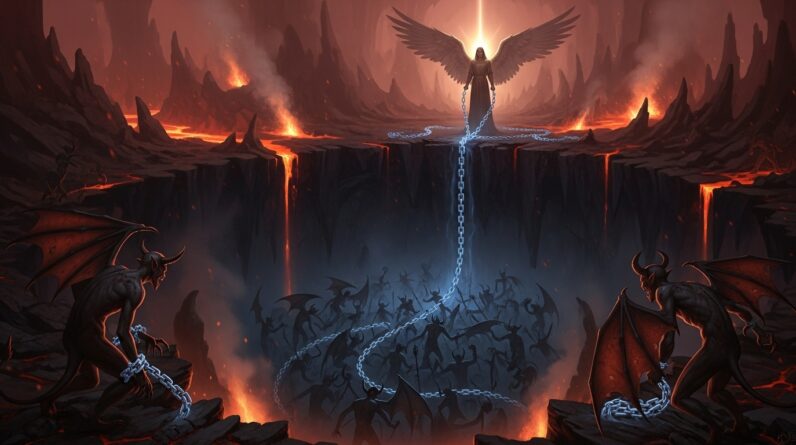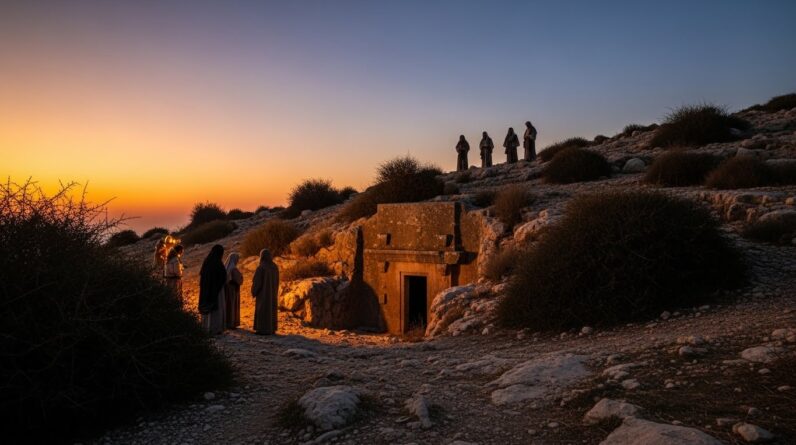Is Hell Real According To The Bible? (Matthew 25:46, Revelation 20:14-15)

Introduction
You’ve probably asked—or at least wondered—whether hell is a literal place, a symbolic language, or something else entirely. It’s a question that touches fear, justice, hope, and the heart of what you believe about God. You may have grown up with fiery images or heard compassionate voices who speak of God’s mercy over judgment. Whatever your background, this question matters because it shapes how you understand God’s character, how you live today, and how you care for others facing spiritual questions. In this article, you’ll walk through two key Bible passages—Matthew 25:46 and Revelation 20:14-15—and consider what they say about hell, how to interpret them, and what they mean for your life.
The Bible Foundation
Here are the main passages we’ll look at closely:
- Matthew 25:46 (NIV): “Then they will go away to eternal punishment, but the righteous to eternal life.”
- Revelation 20:14-15 (NIV): “Then death and Hades were thrown into the lake of fire. The lake of fire is the second death. Anyone whose name was not found written in the book of life was thrown into the lake of fire.”
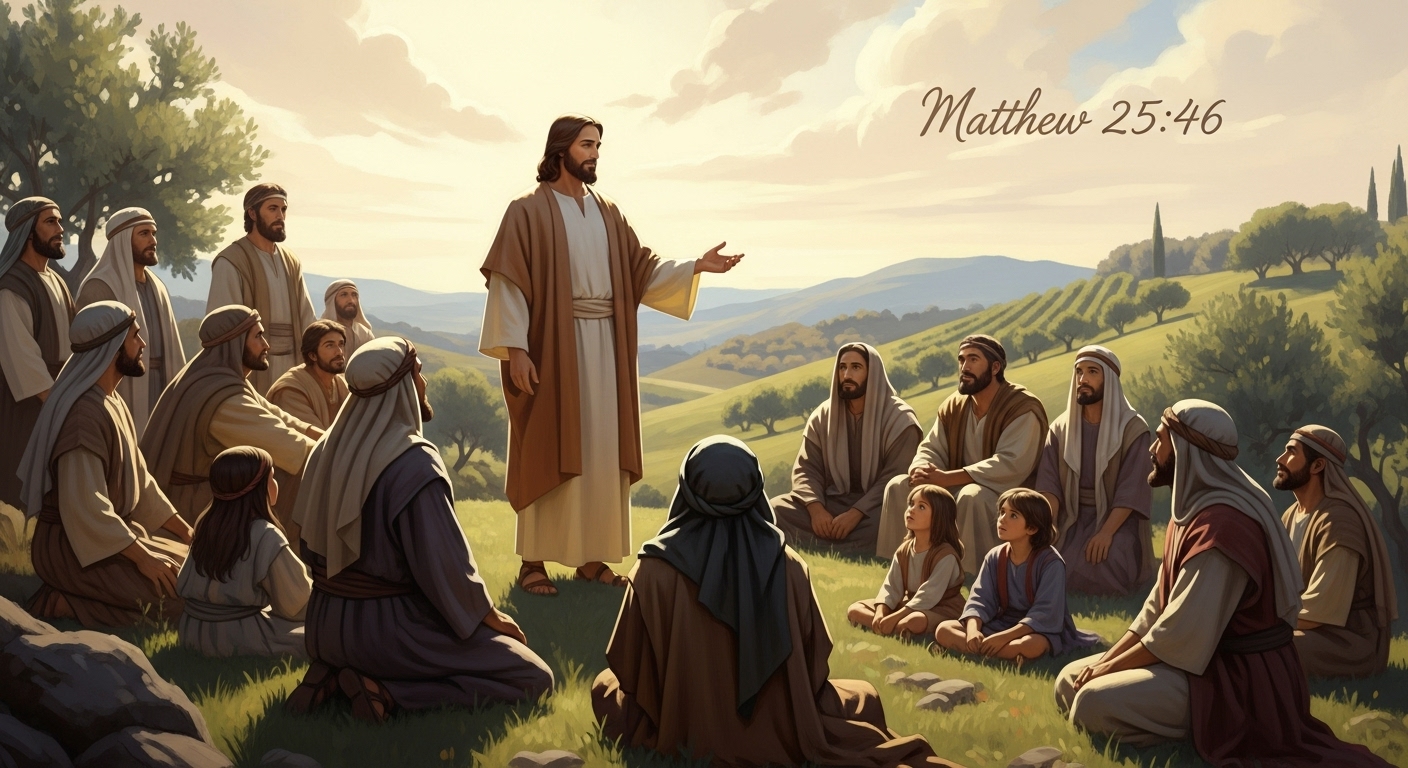
Read these verses slowly and let their plain language sink in. Matthew 25 is part of a longer teaching where Jesus speaks about a final reckoning—sheep and goats, righteous care and neglect. Revelation 20 is part of an apocalyptic vision language describing the end of history and final judgment. Both passages use stark, often unsettling imagery: punishment, Hades, the lake of fire, and second death. Those words are meant to be taken seriously, but the question you’ll wrestle with is whether they point to a literal physical place of eternal torment, a final and irreversible separation from God, symbolic language about destruction and defeat, or some combination of those.
What the verses say in context
When you read Matthew 25:46 in context (the parable of the sheep and the goats), Jesus is addressing how people treat “the least of these” and tying compassion to ultimate destiny. The contrast—“eternal punishment” vs. “eternal life”—is explicit, which presses you to ask what “eternal punishment” means compared with eternal life. In Revelation 20:14-15, the imagery of the lake of fire follows a broader narrative of cosmic judgement: death and Hades being thrown into the lake, and those whose names aren’t in the book of life being cast there. Revelation uses symbolic language but also claims to reveal final realities. Both passages contribute to a biblical picture that judgment and consequences exist—and that they are profound.
Understanding the Core Truth
At the core, Scripture teaches that choices matter and that God’s justice and holiness are not trivial. The Bible presents a gospel-centered solution—Jesus offers rescue, forgiveness, and life—and also indicates that refusing that rescue has consequences. When you read Matthew and Revelation together, you see an important balance: God’s desire is for redemption and life, but He is also just. Hell, in the biblical witness, functions as a recognition that moral reality has consequences and that ultimate reconciliation requires a response.
That core truth is not primarily about satisfying curiosity over metaphysical details. It’s about recognizing that what you choose about God and others has eternal significance. Whether you interpret hell as conscious, eternal torment or as final, annihilating separation, the Bible insists on the reality of judgment and the necessity of responding to God’s grace.
Going Deeper — The Hidden Meaning
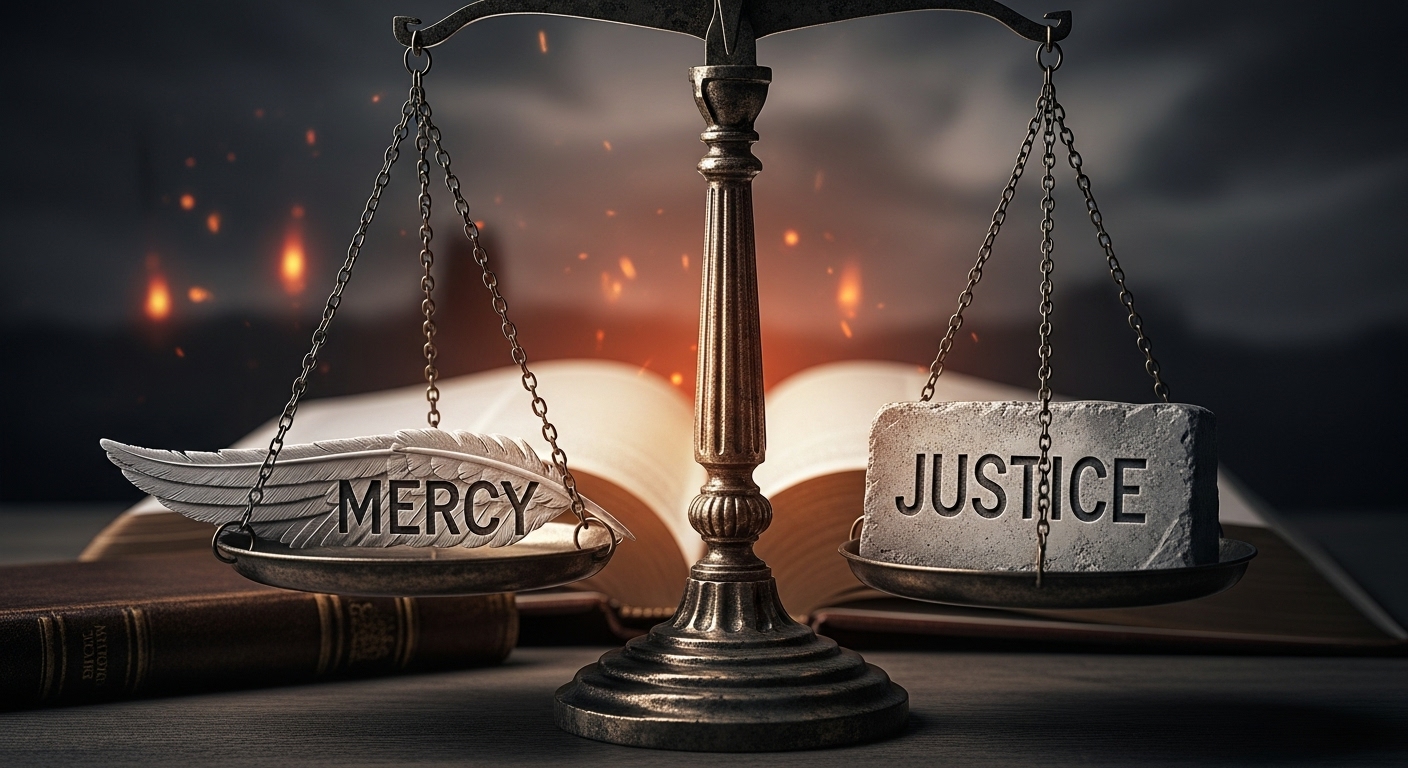
When you dig deeper, you’ll notice biblical language about “death,” “Hades,” “Gehenna,” “lake of fire,” and “second death” appears across different books and contexts. Gehenna (a garbage dump outside Jerusalem associated with burning refuse) is used by Jesus to warn about destructive patterns that lead to ruin. Hades is often a temporary realm of the dead. The “lake of fire” in Revelation uses apocalyptic imagery to communicate the final, irreversible defeat of evil.
The hidden or heart-level lesson is this: the Bible intends to jolt you awake. The imagery isn’t merely terror for terror’s sake; it’s a moral and spiritual wake-up call that points you back to the urgency of grace and relationship with God. Consider the story of the rich man and Lazarus (Luke 16), which uses vivid contrasts to warn about choices. Whether you read the passage as picturing physical flames or as figurative language about separation and ruin, the point is clear—rejecting God and refusing mercy has consequences.
Modern Connection — Relevance Today

So how does this ancient language apply to your modern life? First, it shifts the conversation from merely fearing hell to embracing the rescue Jesus offers. You’re living in a world where moral choices ripple across generations and where spiritual beliefs shape how you love and serve others. Recognizing the seriousness of judgment should deepen your gratitude for Jesus, not harden you. It should push you toward compassion for others who are lost or hurting rather than toward self-righteous condemnation.
Second, thinking well about “Biblical Hell” helps you engage with someone who asks hard questions. You can listen without fear, point to Scripture, and share how Jesus’ invitation is about life, restoration, and hope. For many people today the most persuasive thing is a life lived with humility and love—someone who models the grace Jesus preached.
Practical Application — Living the Message
If these passages challenge you, here are simple steps you can take to live what the Bible teaches about judgment and grace:
- Keep returning to the gospel—daily trust in Jesus reshapes how you live, not just what you fear.
- Practice compassion for those who believe differently—you’ll have more credibility when you speak about consequences if you also show mercy.
- Learn Scripture in community—discussing texts like Matthew 25 and Revelation with trusted friends or a pastor helps you avoid extremes.
- Pray for a heart like Jesus’, one that seeks justice, mercy, and humility.
These steps are small, practical ways you can let the truth of “Biblical Hell” move you toward deeper faith and action in daily life—toward kindness, evangelism rooted in love, and personal holiness.
Faith Reflection Box
Take a moment and ask yourself: If God is both just and merciful, how would that change the way you relate to people who disagree with you? Reflect on a recent conversation where you felt defensive—how might you respond differently after reading these passages?
Key Takeaways:
- God’s Word affirms both the reality of judgment and the primacy of grace.
- The language of hell is meant to urge serious response, not to fuel fear without hope.
- Your faith calls you to live compassionately, speak truthfully, and rest in Christ’s rescue.
Q&A
Q1: Is “eternal punishment” in Matthew 25:46 literal torment forever? Answer: Matthew 25:46 explicitly contrasts “eternal punishment” with “eternal life,” which highlights permanence more than the exact mechanism of punishment. Many faithful interpreters read the phrase as conscious, ongoing separation from God; others, including conditionalists, understand it as final destruction (annihilation) that is irreversible. What you can confidently hold to is that Jesus warns with weighty language: rejection of God’s mercy results in a serious, lasting outcome. For more on how to pray and find peace in the face of daunting truths, see this related post: https://biblestorieshub.com/how-to-pray-for-peace-when-your-mind-feels-overwhelmed/. Also see Matthew 25:46 for context.
Q2: Does Revelation 20:14-15 prove hell is a literal lake of fire? Answer: Revelation’s apocalyptic imagery communicates theological truth through symbols—sea, beasts, dragons, and a “lake of fire.” While the literalness of the “lake” is debated, the passage powerfully declares that evil, death, and separation from life will be finally defeated, and some will experience the “second death.” Whether you read the lake of fire as literal flame or symbolic language for irreversible destruction, the point is consistent: there will be a decisive, divine judgment. See Revelation 20:14-15 to reflect on the vision.
Q3: How can a loving God send anyone to hell? Answer: This is one of the most compassionate questions you can ask. The Bible repeatedly emphasizes God’s love, patience, and desire to save (e.g., 2 Peter 3:9). Yet Scripture also affirms human freedom and responsibility. A loving God pours out grace, but respect for your freedom means you can reject that grace. The result isn’t a change in God’s love but the consistent consequences of turning away from life offered in relationship with Him. Also consider 2 Peter 3:9 for further reflection.
Q4: Should I be afraid of hell or motivated by love? Answer: Fear can be a healthy motivator when it leads you back to God, but fear that isolates or paralyzes isn’t what Scripture encourages. The Bible calls you to reverent awe, repentance, and love—an approach that balances honest respect for judgment with gratitude for grace. Let the reality of judgment stir you to evangelism, compassion, and daily dependence on Christ rather than to cruelty or condemnation of others. Romans 2 and related texts remind you that God’s judgment calls people to self-examination and mercy. See Romans 2 for context and guidance.
Conclusion & Reflection
As you close this exploration, remember that Scripture holds a balance—serious language about judgment alongside persistent invitations to life. Whether you interpret hell as literal fire, metaphorical separation, or final destruction, the unmistakable biblical message is that God offers rescue through Jesus, and your response matters. If this stirred fear, let it drive you to prayer and the gospel. If it stirred gratitude, let it overflow in love for others.
Prayer: Lord, thank You for Your truth and Your mercy. Help me to respond to Your warning with repentance and to share Your love with courage and compassion. Keep me humble, hopeful, and faithful. Amen.

More Inspiration Awaits — Read These Next
👉 For deeper insight into Isaiah 40:31 and how it renews your strength in both faith and daily life
👉 For practical lessons on compassion and neighborliness from the Good Samaritan
👉 For a clear explanation of what we can learn from the Parable of the Good Samaritan
👉 For meaningful insights from the Parable of the Pearl and its hidden treasures
👉 For a deeper look at the Rich Man and Lazarus and what it reveals about the afterlife
👉 For guidance on the Parable of the Ten Virgins and preparing for God’s Kingdom
👉 For clarity on the Parable of the Lamp and how it calls us to shine our light
👉 For insights from the Parable of the Wedding Feast and the meaning behind the invited guests

📘 Jesus and the Woman Caught in Adultery – Grace and Mercy Over Judgement
A powerful retelling of John 8:1-11. This book brings to life the depth of forgiveness, mercy, and God’s unwavering love.
👉 Check it now on Amazon 🛒💥
🔥 “Every great message deserves a home online.” 🌍💬🏡
Don’t let your calling stay hidden. Start a Christian blog or website using Hostinger — with 99.9% uptime, a free domain, and SSL, your voice can shine for God’s glory anytime, anywhere.
💥 Begin today. 🛒 Try it RISK-FREE! ✅
✝️ “Your body is God’s temple — care for it with purpose.” 💪💖🏛️
Renew your energy and restore balance naturally. Mitolyn helps support a healthy metabolism, giving you the vitality to live out God’s calling with strength and confidence.
🔥 Unlock Your Metabolic Power! ⚡Burn More Calories & Feel Great With Mitolyn. 💪
👉 Start Today. 🚀 Check Price Now. 🛒💰
💰 As a ClickBank & Amazon Affiliate, I earn from qualifying purchases.
📖 Acknowledgment: All Bible verses referenced in this article were accessed via Bible Gateway (or Bible Hub).
🚀 Want to explore more? 👉 Dive into our new post on Why Jesus? and experience the 🔥 life-changing truth of the Gospel!



